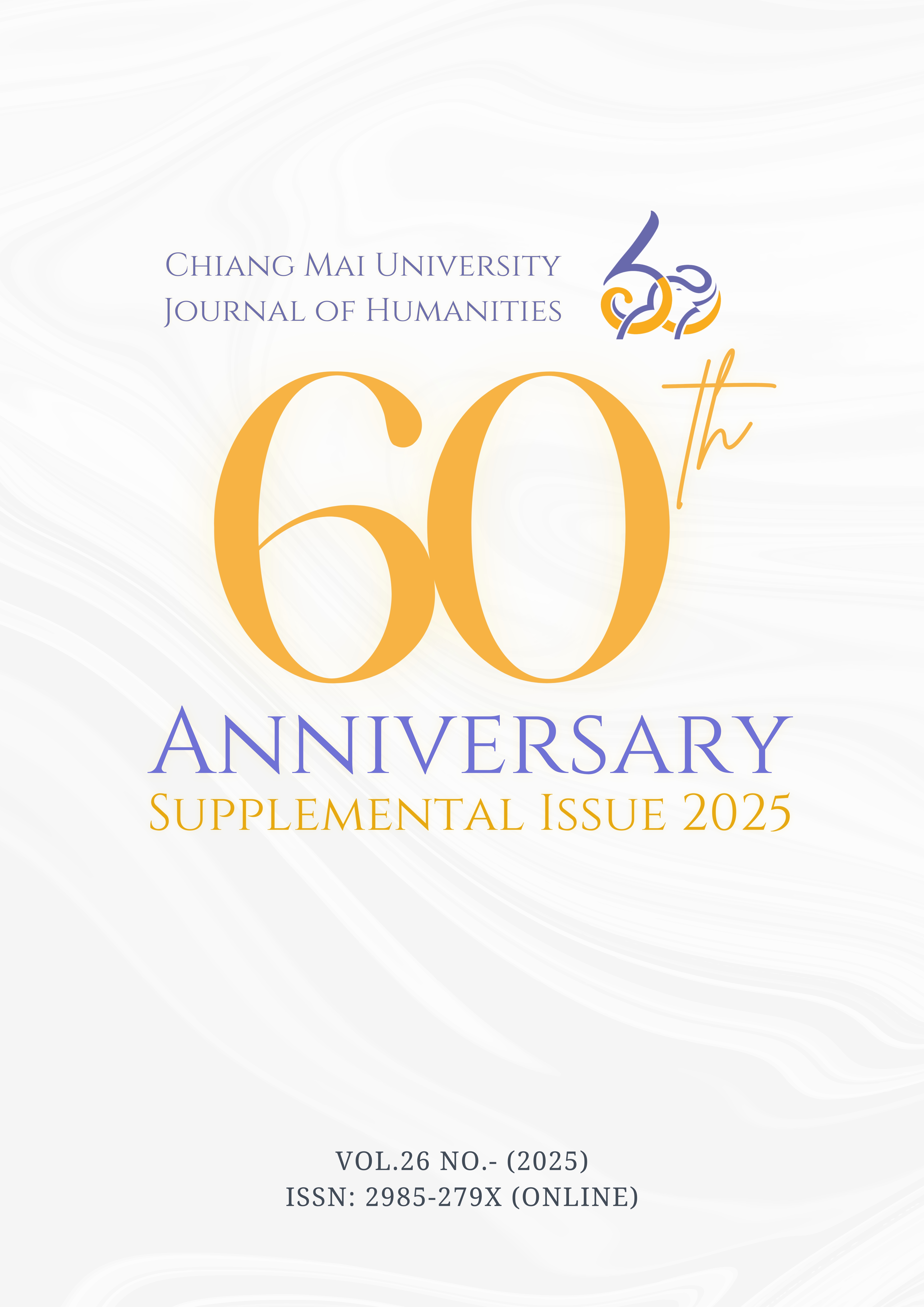Hybridity in Rattawut Lapcharoensap’s “Farangs” and “Don’t Let Me Die in This Place”
Main Article Content
บทคัดย่อ
Drawing on Edward Said’s powerful critique of Orientalism, together with the approach to hybridity adopted by Homi Bhabha, Dean Chan, Jacqueline Lo, and Ien Ang, this article examines Thai-Western relationships portrayed in Thai-American author Rattawut Lapcharoensap’s two remarkable short stories, “Farangs” and “Don’t Let Me Die in This Place.” The two short stories attempt to expose the racism at work in Thai-Western interactions and simultaneously draw attention to a form of hybridity that challenges a colonial mindset and racial stereotypes. Thai-Western relationships portrayed in “Farangs” are marred by unequal power relations but those relationships are not strictly confined to the domination-subordination models foregrounded by Edward Said in Orientalism. Significantly, “Don’t Let Me Die in This Place” depicts situations in which negotiations and compromises lead to the bridging of cultural divides. Furthermore, this story highlights physical and emotional entanglements or mutual cultural accommodations that echo Ien Ang’s promotion of hybridity, not as an elitist posture, but as a useful and necessary tool to tackle the impacts of colonial legacy in contemporary post-colonial societies.
Article Details

อนุญาตภายใต้เงื่อนไข Creative Commons Attribution-NonCommercial-NoDerivatives 4.0 International License.
เอกสารอ้างอิง
Abraham, M. & Andrew N. R. (Eds). (2007). Edward Said and after: Toward a new
humanism. Spec. issue of Cultural Critique 67. University of Minnesota Press.
Ang, I. (2001). On not speaking Chinese: Living between Asia and the West. Routledge.
Bhabha, H. K. (1990). The Third Space: Interview with Homi Bhabha. In J. Rutherford
(Ed.), Identity: Community, culture, difference (pp. 207-221). Lawrence & Wishart.
Bhabha, H. K. (1994). The Location of culture. Routledge.
Chan, D. (2000). The poetics of cultural theory: On hybridity and the new hierarchies.
In H. Gilbert, T. Khoo & J. Lo (Eds.), Diaspora: Negotiating Asian- Australia. Spec. joint issue of Journal of Australian studies 65 and Australian cultural history 19 (pp. 52-57). U of Queensland P.
Clarke, J. J. (1997). Oriental enlightenment. Routledge.
Harrison, R. (2001). Prostitution, politics and power: Issues of the ‘foreign’ in S. Munshi
(Ed.), Western television documentaries of female sex workers in Thailand. In Images of the ‘modern woman’ in Asia: Global media, local meanings (pp. 138-168). Curzon.
Lo, J. (2000). Beyond happy hybridity: Performing Asian-Australian identities.
In (I. Ang, et al. Eds.), Alter/Asians: Asian-Australian identities in art, media and popular culture (pp. 152-168). The University of Western Sydney.
Lo, M. W. (2000). ‘Possibile only on paper?’ Hybridity as parody in Brian Castro’s Drift.
Diaspora: Negotiating Asian- Australia. In H. Gilbert, T. Khoo & J. Lo (Eds.), Diaspora: Negotiating Asian- Australia. Spec. joint issue of Journal of Australian studies 65 and Australian cultural history 19 (pp. 69-74). U of Queensland P. Macfie, A.L. Orientalism: A Reader. Edinburgh: Edinburgh UP, 2000.
Lapcharoensap, R. (2005). Don’t let me die in this place. In R. Lapcharoensap. Sightseeing
(pp. 119-150). Grove Press.
Lapcharoensap, R. (2005). Farangs. In R. Lapcharoensap. Sightseeing (pp. 1-22).
Grove Press.
Reynolds, C. J. (1999). On the gendering of nationalist and postnationalist selves in
twentieth-century Thailand. In P. A. Jackson & N. M. Cook (Eds.), Genders and
sexualities in modern Thailand (pp. 261–274). Silkworm Books.
Said, E. (1978). Orientalism. Routledge.


